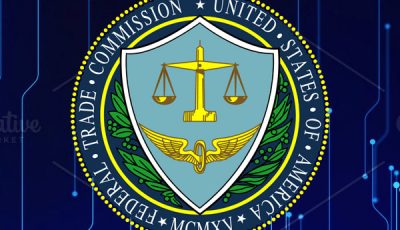Two Very Different Revenge Porn Stories Out Of D.C.
 WASHINGTON – Two very different stories out of the nation’s capital this week underscore the difficulty of tackling revenge porn, from both a legal and cultural perspective.
WASHINGTON – Two very different stories out of the nation’s capital this week underscore the difficulty of tackling revenge porn, from both a legal and cultural perspective.
First, there’s an announcement from the Federal Trade Commission concerning a complaint filed in federal court by the FTC and the state of Nevada against MyEx.com, EMP Media Inc., and some of the site’s individual operators, alleging violations of the FTC Act and Nevada’s deceptive trade provisions.
According to the complaint, MyEx.com is a site “dedicated solely to revenge porn.”
“Defendants solicit intimate pictures and videos for the website together with personal information of the victims, including full name, age, address, employer, phone number, social media account information, and email address, without the victims’ consent,” the complaint states. “The site has also extorted victims by requiring them to pay fees of hundreds of dollars to have their intimate pictures, videos, and information removed from the site.”
The ‘fees’ charged by the site to remove content ranged from $499 to $2,880, according to the FTC.
“MyEx.com uses reprehensible tactics to profit off of the intimate details of individuals’ private lives,” said Acting FTC Chairman Maureen K. Ohlhausen. “People who were featured on this site suffered real harm, including the loss of money they paid to remove intimate images and personal information, loss of jobs, and being subject to threats and harassment.”
The FTC and state of Nevada have approved a proposed settlement with one of the named defendants, Neil Infante, who is identified in the complaint as the president, secretary, treasurer, director and registered agent of EMP.
Under the settlement, Infante has agreed to a $205,000 judgment against him – although satisfaction of the full judgment will be suspended upon receipt of a $15,000 payment “in light of his inability to pay more,” according to the FTC.
The settlement stipulates that the FTC and Nevada’s agreement to suspension of the full judgment is “expressly premised upon the truthfulness, accuracy, and completeness of Defendant’s sworn financial statements and related documents.” Should the court find Infante failed to disclose any material assets or “materially misstated the value of any asset, or made any other material misstatement or omission in the financial representations,” the suspension of the judgment will be lifted and Infante will find himself on the hook for more than the $15,000 payment.
While the action against MyEx.com and its operators is a small victory in the battle against revenge porn, a second story out of D.C. demonstrates how wide-ranging and intractable the spread of nonconsensual pornography has become.
According to a report by The Daily Beast, an examination of IP addresses associated with the notorious image board Anon-IB revealed users connecting from computers from the “U.S. Senate, Navy and other government computers, including the Executive Office of the President.”
“Wow tig ol bitties. You have any nudes to share?” one user wrote while connected to the board from an IP address registered to the Senate, beneath a photo of a woman who reportedly works in Washington.
While an IP address can’t by itself be used to identify a specific user, Einar Otto Stangvik, a security analyst from the Norwegian newspaper VG who assisted the Daily Beast in its evaluation, sounds hopeful that the data could be used to eventually unmask the users behind the posts.
“The data we’re currently working with was obtained and analyzed to better understand who spreads the abusive imagery, and to show that abusers should have no greater hopes of invisibility than their victims,” Stangvik said.
While it’s always possible AnonIB users are spoofing the IP addresses associated with government computers, the Daily Beast report noted the IP addresses from the Senate and the Executive Office of the President “do not appear in lists of known, previously compromised machines, according to online records.”
Assuming the IP addresses in question reveal what the raw data suggests – individuals working in high government places are frequenting AnonIB in search of “wins” targeting women who also work in D.C. – it’s another reminder that revenge porn isn’t just a pastime for online trolls and disaffected basement-dwellers; it’s something which has crept into society’s more “respectable” quarters, as well.
As Stangvik observed, when this sort of behavior goes unpunished (or go, as revenge porn claims sometimes do, uninvestigated), the lack of consequences can encourage and embolden the perpetrators.
“Stolen, revenge-motivated and otherwise abusive imagery posted online has become a very real issue over the last years,” Stangvik said. “I fear that failure to deal with the problem will normalize online abusive behavior and sexual harassment, and that this will further nourish victim-blaming and dismissal of the abuse as ‘to be expected.’”













